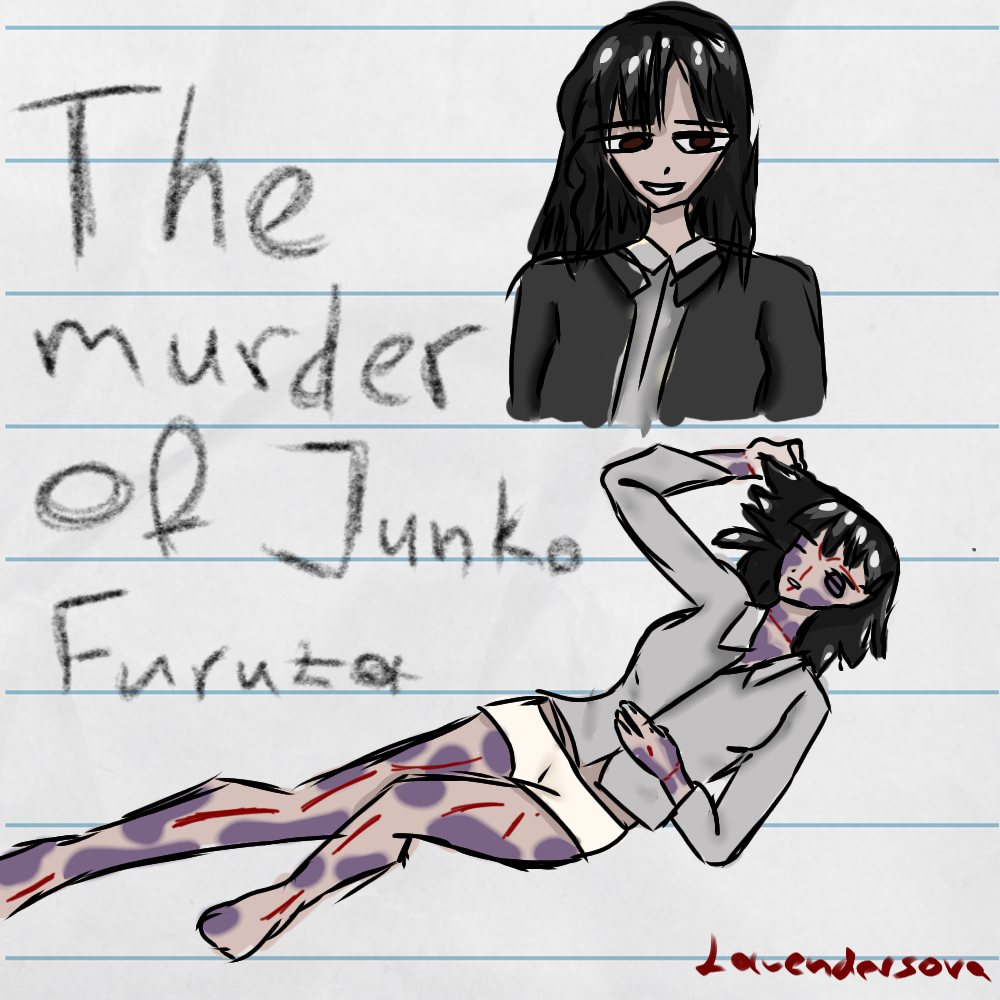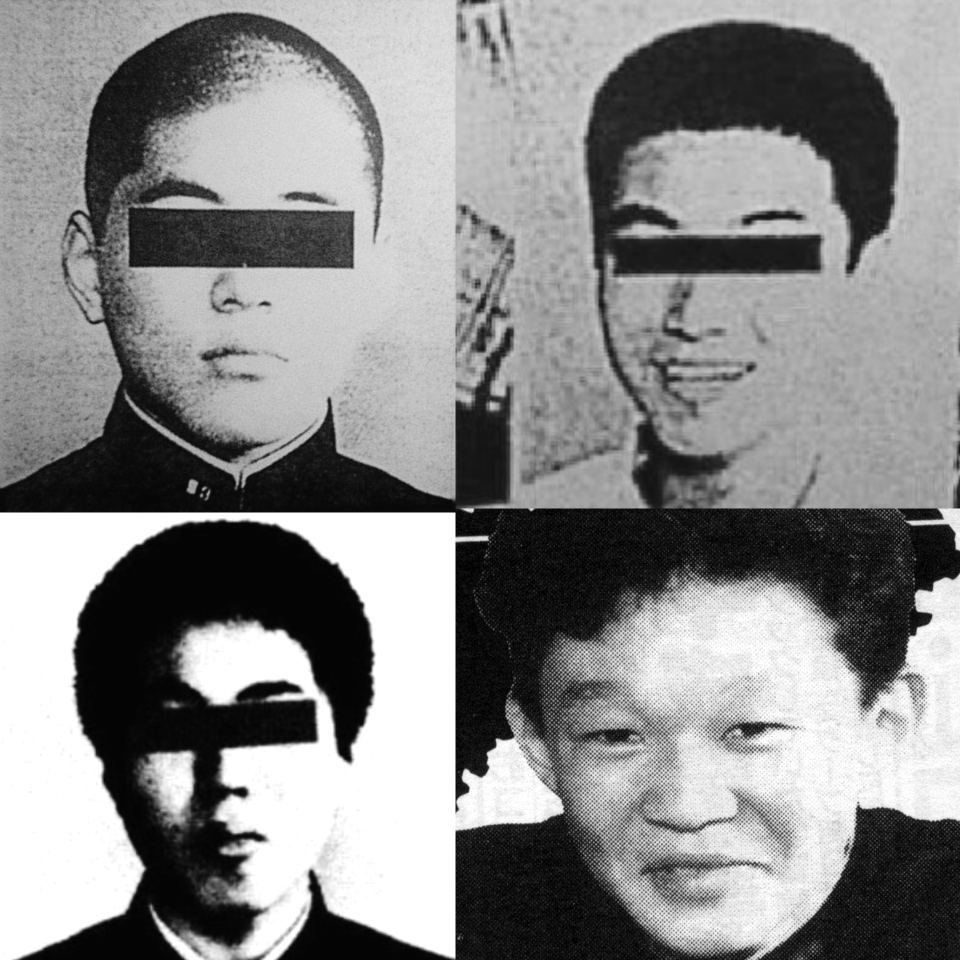Junko Furuta: The Dark Truth Behind A Tragic Story
Every now and then, history throws us a curveball that shakes the very core of humanity. Junko Furuta's story is one of those moments that left an indelible mark on Japanese society and the world. It's a tale of darkness, despair, and the fragility of human life. But why are we still talking about it decades later? Because sometimes, the darkest stories teach us the most important lessons.
You might be wondering, "Who is Junko Furuta?" Well, let me paint you a picture. Junko was a 17-year-old high school student from Tokyo, someone who could've had a bright future ahead of her. But on November 25, 1988, her life took a tragic turn that would haunt Japan for years to come. This isn't just a story; it's a reminder of how fragile life can be.
So, why are we diving into this story today? Because it's not just about Junko. It's about understanding the societal factors that led to such a horrific event, the legal aftermath, and how we can prevent similar tragedies in the future. This isn't just history; it's a lesson for all of us.
Biography of Junko Furuta
Early Life and Background
Junko Furuta was born on December 23, 1970, in Tokyo, Japan. She grew up in a modest family, attended school like any other teenager, and had dreams of her own. But beneath the surface, there were signs of a troubled life. Her family faced financial difficulties, which often affected her mental health. Despite these challenges, Junko was known to be a bright and ambitious young woman.
Here's a quick breakdown of her life before the tragedy:
- Born in Tokyo, Japan
- Attended Kunitachi High School
- Faced financial struggles at home
- Had aspirations of becoming a teacher
Data and Facts About Junko Furuta
Let's take a closer look at some key facts about Junko Furuta:
| Full Name | Junko Furuta |
|---|---|
| Date of Birth | December 23, 1970 |
| Place of Birth | Tokyo, Japan |
| Education | Kunitachi High School |
| Date of Incident | November 25, 1988 |
Understanding the Tragic Event
What Happened to Junko Furuta?
On that fateful night in November 1988, Junko Furuta was kidnapped by a group of four high school boys. They lured her to an abandoned house in Tokyo, where she was held captive for over 40 days. During this time, she endured unimaginable torture, abuse, and degradation. The details are so harrowing that they shocked even the most seasoned investigators.
But here's the kicker: the boys weren't just random strangers. They were classmates and acquaintances of Junko. This wasn't just a crime; it was a betrayal of trust that left the community reeling. How could someone so young commit such atrocities?
The Aftermath of the Incident
When the news broke, Japan was in disbelief. How could such a heinous crime happen in a society known for its strict laws and social order? The investigation that followed was intense, with police pouring over every detail. Eventually, three of the four perpetrators were arrested and sentenced to life in prison. The fourth suspect fled the country and remains at large to this day.
But the legal consequences weren't enough to bring closure to Junko's family. The emotional scars ran deep, and the case became a catalyst for change in Japan's legal system. It highlighted the need for stricter laws and better protection for victims.
Why Does Junko Furuta's Story Still Resonate?
The Impact on Japanese Society
Junko Furuta's case wasn't just a crime; it was a wake-up call for Japanese society. It forced people to confront uncomfortable truths about teenage violence, mental health, and the justice system. The media coverage was extensive, and the public demanded answers. But more importantly, it sparked a conversation about how to prevent such tragedies in the future.
One of the most significant changes was the introduction of harsher penalties for juvenile offenders. Before Junko's case, Japanese law was lenient on minors, assuming they were less culpable for their actions. But after the incident, the law was amended to hold juveniles more accountable for their crimes.
Lessons Learned from the Tragedy
So, what can we learn from Junko Furuta's story? For starters, it's a reminder of the importance of mental health awareness. Many of the perpetrators in this case were dealing with their own issues, which went unnoticed or untreated. It's also a call to action for parents, educators, and communities to be more vigilant about the signs of trouble in young people.
But perhaps the most important lesson is about empathy. Junko's story is a stark reminder of how easy it is to lose sight of someone's humanity. It's a call to treat everyone with kindness and respect, no matter their background or circumstances.
Legal and Social Implications
The Role of the Justice System
After Junko Furuta's case, Japan's justice system underwent significant changes. The Juvenile Law was amended to allow for harsher penalties for serious crimes committed by minors. This was a controversial move, as some argued it went against the principles of rehabilitation. But for many, it was a necessary step to deter future crimes.
Additionally, the case highlighted the need for better support systems for victims and their families. Junko's family received counseling and financial assistance, but it wasn't enough to erase the trauma they endured. This led to the establishment of victim support programs across Japan, providing resources and guidance to those affected by crime.
Social Repercussions
The social impact of Junko Furuta's case was profound. It sparked a national conversation about teenage violence, mental health, and the role of education in preventing crime. Schools began implementing programs to teach empathy, conflict resolution, and emotional intelligence. The media also played a crucial role in shaping public opinion, often using Junko's story as a cautionary tale.
But the story didn't end there. Junko's case inspired a generation of activists and reformers who sought to make Japan a safer place. It became a symbol of the fight against injustice and a reminder of the power of collective action.
Preventing Future Tragedies
Steps Taken by the Japanese Government
In response to Junko Furuta's case, the Japanese government implemented several measures to prevent similar tragedies. These included:
- Stricter laws for juvenile offenders
- Increased funding for mental health services
- Improved training for educators and law enforcement
- Creation of victim support programs
These steps were met with mixed reactions. While some praised the government for taking action, others criticized the focus on punishment over rehabilitation. Nevertheless, the measures had a tangible impact on reducing violent crimes among youth.
Community Initiatives and Awareness Campaigns
Beyond government action, communities across Japan took it upon themselves to address the root causes of violence. Grassroots organizations sprang up, offering counseling, education, and support to at-risk youth. Awareness campaigns were launched to educate the public about the warning signs of mental health issues and the importance of empathy.
One such campaign, "Junko's Voice," encouraged young people to speak out about their struggles and seek help when needed. It became a powerful tool for breaking the stigma surrounding mental health and fostering a culture of openness and understanding.
Conclusion: Looking Forward
Junko Furuta's story is a tragic reminder of the fragility of life and the importance of empathy. While the case shocked Japan and the world, it also led to significant changes in the justice system and society at large. By learning from the past, we can work towards a future where such tragedies are a thing of the past.
So, what can you do? Start by educating yourself and others about the warning signs of mental health issues. Reach out to those in need and offer a helping hand. Support programs and initiatives that promote empathy and understanding. Together, we can make a difference.
And remember, every life matters. Junko Furuta's story may have ended in tragedy, but her legacy lives on in the changes it inspired. Let's honor her memory by striving for a better, safer world for all.
Table of Contents
- Biography of Junko Furuta
- Early Life and Background
- Data and Facts About Junko Furuta
- Understanding the Tragic Event
- What Happened to Junko Furuta?
- The Aftermath of the Incident
- Why Does Junko Furuta's Story Still Resonate?
- The Impact on Japanese Society
- Lessons Learned from the Tragedy
- Legal and Social Implications
- The Role of the Justice System
- Social Repercussions
- Preventing Future Tragedies
- Steps Taken by the Japanese Government
- Community Initiatives and Awareness Campaigns
- Conclusion: Looking Forward


